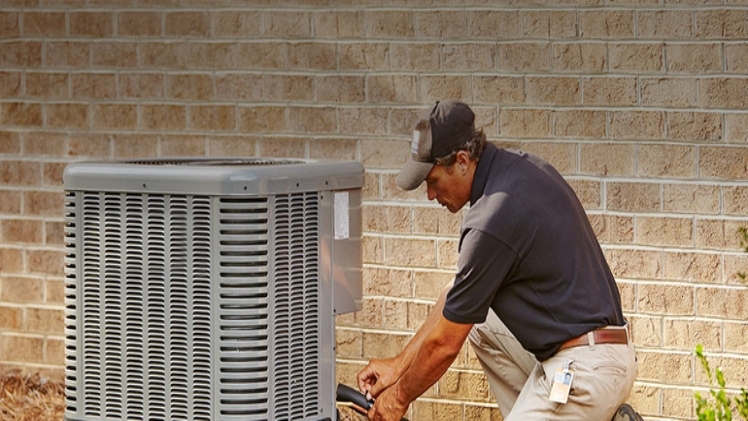This blog post emphasizes the importance of HVAC systems in our lives, highlighting how regular maintenance is essential for homeowners, property managers, and HVAC technicians. It aims to help readers understand and maximize the efficiency of their HVAC systems to avoid uncomfortable situations.
Contents
- 1 Understanding Your HVAC System
- 2 Signs Your HVAC System Needs Maintenance or Repair
- 3 DIY HVAC Maintenance Tips for Homeowners
- 4 The Benefits of Professional HVAC Maintenance
- 5 How to Choose the Right HVAC Technician
- 6 Scheduling Maintenance: Frequency and Best Practices
- 7 Long-Term Efficiency and Cost Savings
- 8 Conclusion
Understanding Your HVAC System
A Brief Overview
Your HVAC system is the unsung hero of your household, responsible for ensuring a comfortable indoor climate year-round. It consists of several key components including the furnace, air conditioner, ductwork, and thermostat. Together, these elements work in harmony to regulate temperature, humidity, and indoor air quality.
The Core Components
- Furnace: Heats the air and distributes it throughout the house.
- Air Conditioner: Cools the air and removes moisture.
- Ductwork: Channels air to different rooms.
- Thermostat: Acts as the control center, setting the desired temperature.
How It All Works Together
When you adjust your thermostat, it sends signals to your HVAC system to either heat or cool the air. The conditioned air is then circulated through your home’s ductwork, ensuring every room achieves the desired temperature.
Signs Your HVAC System Needs Maintenance or Repair
Unusual Noises
If you hear banging, clanking, or squealing sounds coming from your HVAC system, it’s a clear sign something is amiss. These noises often indicate loose or worn-out parts that need immediate attention.
Inconsistent Temperatures
Are some rooms colder or hotter than others? This imbalance is a red flag that your HVAC system might need maintenance. Inconsistent temperatures can result from blocked vents, leaking ductwork, or a malfunctioning thermostat.
High Energy Bills
A sudden spike in your energy bills is another telltale sign. An inefficient HVAC system works harder to maintain the desired temperature, consuming more energy and driving up costs.
DIY HVAC Maintenance Tips for Homeowners
Change Air Filters Regularly
One of the simplest yet most effective maintenance tasks is changing your air filters. Dirty filters restrict airflow, causing your system to work harder. Aim to replace them every 1-3 months.
Clean the Condenser Coils
Over time, condenser coils can accumulate dirt and debris, reducing the system’s efficiency. Periodically clean the coils by gently brushing away the buildup or using a garden hose to rinse them off.
Check and Clear Vents
Ensure all air vents are open and unobstructed to allow for proper airflow. Vacuuming the vents can help remove dust and improve air quality.
The Benefits of Professional HVAC Maintenance
Extended Lifespan
Regular professional check-ups can extend the lifespan of your HVAC system. Technicians can spot and fix minor issues before they become major problems, saving you from costly repairs or replacements.
Improved Efficiency
Professional maintenance ensures that all components of your HVAC system are functioning optimally. This efficiency translates to lower energy consumption and reduced utility bills.
Enhanced Comfort
A well-maintained HVAC system provides consistent temperatures and better humidity control, enhancing your overall comfort.
How to Choose the Right HVAC Technician
Credentials and Experience
Always check the credentials and experience of prospective HVAC technicians. Look for certifications such as NATE (North American Technician Excellence) and ensure they have a solid track record.
Customer Reviews
Reading customer reviews can provide valuable insights into a technician’s reliability and quality of work. Look for reviews on multiple platforms to get a well-rounded view.
Transparent Pricing
Choose a technician who offers transparent pricing. Detailed quotes help you understand what you’re paying for and avoid hidden costs.
Scheduling Maintenance: Frequency and Best Practices
Seasonal Check-Ups
Schedule professional maintenance twice a year—once in spring and once in fall. These check-ups, including air conditioning services like those in Scottsdale, prepare your HVAC system for the extreme temperatures of summer and winter.
Set Reminders
Life gets busy, and it’s easy to forget maintenance appointments. Use calendar reminders or set alerts on your phone to ensure you stay on top of HVAC care.
Keep Records
Maintain a log of all maintenance activities, including dates and details of work performed. This record can be invaluable for future troubleshooting and potential resale value.
Long-Term Efficiency and Cost Savings
Energy-Efficient Upgrades
Consider upgrading to energy-efficient HVAC components such as programmable thermostats and high-efficiency furnaces. These upgrades can significantly reduce your energy consumption.
Regular Inspections
Regular inspections by professionals can identify areas where your system could be more efficient. For example, sealing ductwork can prevent energy loss and improve overall performance.
Financial Incentives
Many utility companies and government programs offer rebates and incentives for energy-efficient upgrades. Take advantage of these programs to offset the initial investment.
Conclusion
Now that you have a better understanding of your HVAC system and how to maintain it, you can ensure it continues to operate smoothly and efficiently. Regular maintenance not only saves money in the long run but also provides peace of mind knowing that your home’s comfort is taken care of.
